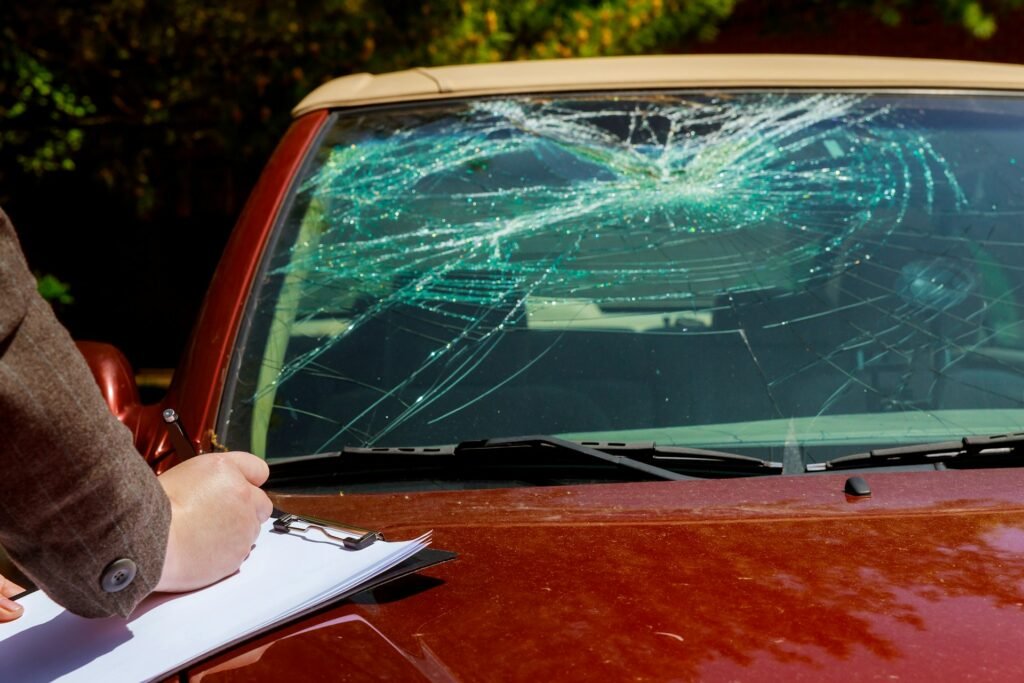Immediate Actions at the Scene
- Ensure Safety: Your immediate priority should be safety. If possible and safe, move your vehicle to the side of the road to prevent further accidents. Turn on your hazard lights to alert other drivers. If anyone is injured, call 911 immediately and wait for emergency services.
- Call Law Enforcement: Contact local law enforcement or highway patrol, even if the accident seems minor. A police report can be essential for insurance claims and legal purposes. In Pennsylvania, it is required to report an accident if it results in injury, death, or significant property damage.
- Exchange Information: Gather contact and insurance information from all drivers involved. This should include names, addresses, phone numbers, driver’s license numbers, license plate numbers, and insurance details. Document the make, model, and color of the vehicles involved.
- Gather Evidence: Document the scene with photos or videos, capturing vehicle damage, road conditions, and traffic signs. Note the time, date, weather, and any other relevant details. Collect contact details of any witnesses, as their statements can be valuable later. Check the area to see if there are any visible surveillance cameras.
Seeking Medical Attention
Regardless of how you feel, seek medical evaluation as soon as possible after the accident. Some injuries may not be immediately apparent but can have serious long-term effects.
It’s crucial to adhere to any prescribed treatment plans. Medical records will be important for any legal claims you may pursue, demonstrating the injuries you sustained and your commitment to recovery.
Contacting Insurance Companies
Report the accident to your insurance provider promptly. They will guide you through the claims process and inform you of any necessary documentation. However, it is important that you do not give a recorded statement, as it could be used against you during the course of litigation. Request a copy of your Declaration Page and review your insurance policy to comprehend what is covered under your plan, such as medical expenses, property damage, or uninsured motorist coverage. It’s also important to know what Tort status you have as a Pennsylvania and New Jersey driver. For more on the difference of full vs. limited tort, please click here.
Contacting Legal Assistance
Consult with a personal injury attorney if the accident involves significant injuries, disputes over fault, complex insurance claims, or if you anticipate litigation. An experienced attorney will protect your rights, negotiate with insurers, gather evidence, and represent you in court if necessary. They can offer valuable guidance on Pennsylvania laws that may affect your case.
Understanding Pennsylvania’s No-Fault Insurance System
- Basic Principles: Pennsylvania follows a “no-fault” insurance system, meaning your own insurance pays for medical expenses regardless of who was at fault. The state minimum coverage for medical benefits is $5,000. Check your policy to see if you have an increased coverage available.
Filing a Police Report
If the police did not come to the scene, Pennsylvania law requires filing a report within five days if the accident resulted in injury or significant damage. Obtain a form from the Pennsylvania Department of Transportation (PennDOT) website or local authorities.
It’s important to file a police report, as this document substantiates the accident’s occurrence and provides an official account, which can be crucial for insurance claims and legal proceedings.
Protecting Your Legal Rights
- Avoid Admitting Fault: Refrain from apologizing or admitting responsibility at the scene, as this can be used against you later. Stick to the facts when discussing the accident with other parties or insurers.
- Document Everything: Keep a detailed record of all communications with insurers, medical professionals, and others involved in the accident. This documentation can support your case if disputes arise.
- Statute of Limitations: Be aware of Pennsylvania’s statute of limitations for personal injury claims, which is generally two years from the accident date. Filing within this time frame is essential for pursuing legal action.
Handling Property Damage
Have your vehicle assessed by a reputable mechanic or auto body shop for an accurate estimate of the repair costs. It’s also best to work with your insurance company to negotiate repair or replacement costs. An attorney can assist if disagreements arise over the value or extent of damages.
Dealing with Uninsured or Underinsured Motorists
- Uninsured Motorist Coverage: This optional coverage protects you in accidents involving drivers without insurance. Understanding your policy’s terms can help in claiming damages effectively.
Conclusion
Experiencing a motor vehicle accident can be overwhelming, but knowing the right steps can make a significant difference. From ensuring immediate safety to documenting the scene and seeking medical care, each action plays a crucial role. Protecting your legal rights and understanding your insurance are equally important.
If you find the process of dealing with insurance and legal matters confusing, don’t hesitate to seek professional help. At Kunnel Law, we provide the guidance and representation needed to navigate these challenges. Contact us for personalized support and to ensure your interests are protected.
Remember, staying informed and taking prompt action can significantly impact the outcome of your case. If you’ve been in a car accident and need assistance, reach out to Kunnel Law today for a consultation. Our attorneys for motor vehicle accidents are here to help you every step of the way.
This guide is not a complete summary of the Pennsylvania Auto Insurance Law. It is designed to highlight certain important features of this law and should not be considered legal advice. All individual needs must be addressed on a case-by-case basis. If you have any questions concerning your coverage, please contact your insurance company representative.

